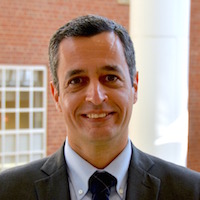Study identifies complex network of factors impeding health system reform in Iraqi Kurdistan
December 19, 2018
New research from the UNC Gillings School of Global Public Health offers the first comprehensive research to identify factors that have inhibited the growth of a sustainable health care system in the Iraqi Kurdistan Region (IKR), a deficit that has placed the region’s people at risk for worsening health outcomes.
Dilshad Jaff, MD, MPH, a program coordinator for solutions to complex emergencies with the Gillings School’s Research, Innovation and Global Solutions unit and adjunct assistant professor of maternal and child health, is a co-author of “The factors impeding health system reform in Iraqi Kurdistan region,” published online Dec. 6 in the journal Medicine, Conflict and Survival.
Jaff has nearly two decades of experience with humanitarian crises in conflict zones in the Middle East, largely with the International Committee of the Red Cross. The team developed the study to evaluate why calls to reform health care and address poor health outcomes in the IKR have been slow and ineffective. The primary researcher interviewed 11 individuals involved in health policy in the region and identified 16 factors impeding the success of reform, which are categorized into five major themes – historical, ethical, cultural, political and institutional.
The Iraqi health system dates to the 1920s, when Britain colonized Iraq. Since then, the system has experienced relatively few updates, leaving an outdated medical education program and inadequate health care policies. Political upheaval contributed to stagnant growth, as years of war with Iran in the 1980s and the Persian Gulf War in the early 1990s depleted the workforce and made a major impact on the health care system’s ability to progress. The region had not recovered when in 2003 they again were engaged in the Iraq War.
To compound the problem, IKR health care employees are not necessarily chosen by expertise and skill, so there is little motivation for training and scarcely any competition, Jaff said.
“In addition to these historical factors that have contributed to political and economic instability,” he said, “the system itself was set up poorly. Because the public system isn’t functioning well, the private sector can take advantage of that and grow.”
Jaff said the region is a relatively peaceful one, with a strong community and a network of well-educated supporters inside the region and abroad, such as his team, working to find solutions. Understanding the bigger picture of the IKR’s historical and social constructs should assist policy makers – and those who advise and aim to support them – to develop plans for reformation that can address the health system’s failures.
“This is an old, established system,” Jaff said. “To reform and change it requires a huge commitment, strong political will, courage – and time. It takes time to change behavior and mindset.”
Contact the Gillings School of Global Public Health communications team at sphcomm@listserv.unc.edu.

